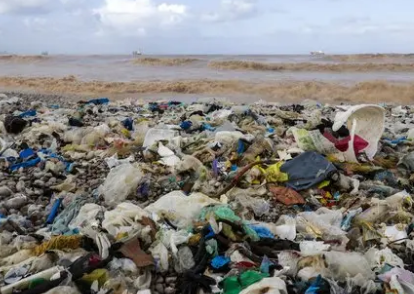Van Nimwegen was two years out of business school and working for Albert Heijn, the largest Dutch grocery chain, when she discovered the food waste problem. As an assistant store manager she wanted to do something about it, and she couldn't—food banks might take some bread but not all the produce. She and two co-workers came up with the idea for InStock in 2014 and persuaded the company to support it. It has gone from a pop-up to this restaurant to two others in Utrecht and The Hague, and for van Nimwegen, it was just getting really interesting.
范尼姆维根在商学院毕业两年后,为荷兰最大的食品连锁超市艾伯特海金公司工作时发现了食品浪费问题。作为经理助理,她想要为此做些什么,但却心有余力不足:从事救济工作的食物银行可能会收一些面包,但收不完所有的农产品。她和两位同事于2014年想出了开这家餐厅的主意,并说服公司予以支持。餐厅从临时摊位发展到现在的餐馆,再到乌德勒支和海牙的分店。而对于范尼姆维根来说,好戏才刚开始。
"It's not that we had a dream to start a restaurant chain," she said. "Not at all. We wanted to do something about food waste."
“我们并不是一早就有开连锁餐馆的梦想,”她说,“一点都没有。我们只想做点事情降低食物浪费。”

My main course arrived: nuggets of "Kentucky Fried Goose." "Watch out, there can be bullets in the meat," said the waitress. Schiphol Airport, van Nimwegen explained, employs hunters to dispatch wild geese that might otherwise foul jet engines. The dead birds used to be incinerated; now they come here. The nuggets were chewy but tasty and bullet free. With eggplant chutney and red pepper coulis they went down nicely.
主菜上来了:肯德基炸鹅块。“小心,肉里可能有子弹”,侍者说。范尼姆维根解释道,西佛尔机场雇人射杀附近野鹅,以避免它们撞上飞机弄坏引擎。死鸟以前被扔进焚化炉,现在都送到这里。肉块有点韧,但味道好,也没有夹杂子弹。配着茄酱和红椒汁,吃得十分顺口。
The chefs at InStock improvise with whatever they get. The food comes from Albert Heijn but also from producers, including farmers. "It's easy to point fingers at the supermarket," van Nimwegen said. "The whole supply chain, including the customer—everybody wants everything in stock. We're just spoiled, basically. The companies don't want to sell ‘no.' So they'll always have a little bit too much."
InStock餐厅的厨师们根据手头食材即兴创作。供货的除了AH超市,还包括农场等生产商。“指责超市谁都会”,范尼姆维根说,“但整个供应链,包括消费者——所有人都想要货色齐全。我们都被惯坏了。商家不愿打出'缺货'的牌子。因此他们总会进货过多。”













